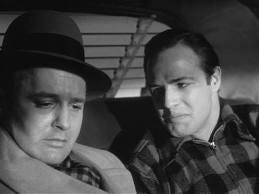epic composer FAIL #40

What makes this composer FAIL so epic?
I was rejected by THE New York Times.
(!!!)
I know, total bummer, right? Because if you've contributed to a news source that is read by hundreds of thousands of people globally each day, who cares if you've never won an ASCAP or BMI Young Composer Award or if your orchestra piece wasn't selected by the Minnesota Orchestra Composer Institute? Who bloody cares that you have not "made it" yet as a young composer when you have HUNDREDS OF THOUSANDS OF PEOPLE knowing who you are and that you must be super-awesome because you wrote for the New York Times. You could have HUNDREDS OF THOUSANDS of fans!
(Or hundreds of thousands of haters—that's what I keep telling myself. Sigh.)
* * *
In April Daniel Felsenfeld asked me if I wanted to contribute to The Score. I absolutely remember this moment because the email arrived on my Blackberry right when I was having lunch with my friend Annick and her mother in Vermont and I was so happy that I could share my good news with the two of them.
I was familiar with The Score because I stumbled upon Annie Gosfield's "Advice to Young Composers" a year after it was published and instantly subscribed to it on my Google Reader. Even Jason Freeman's "Compose Your Own" contribution introduced me to his "Piano Etudes" which inspired my "Sounds from the Gray Goo 2.11." I am such a loyal follower of this series, and I was happy that the Times was relaunching it. AND THEY ASKED ME TO CONTRIBUTE!*
At first, I wasn't sure what to write about. I eventually went with what I knew best: my life as a graduate student who was almost done with coursework but still had to pass one qualifying exam, one comprehensive exam, one oral exam, and a dissertation to submit. Oy. Daniel said I was like a "composer teenager"—an adolescent legally allowed to drive and yet still had a curfew imposed by parents. And at my age, you wonder and question why that curfew still exists.
I'd like to think I'm a good composer teenager. I've done what I've been told to do in graduate school, and I constantly work to write good music, market myself, and have my pieces performed as much as possible. I believe this will pay off, but I wasn't sure that graduate conservatory training adequately trains all composition students who pay thousands of tuition dollars hoping that their education will help them not only write good music, but also teach them essential marketing and networking skills.
So, as a rebellious composer teenager, I wrote about that—how the current conservatory system means well for us young composers, but how it leaves behind some of us due to its lack of teaching us certain vital composition skills. This topic had been on my mind for a while: many of my colleagues, both composers and future scholars, are quite a bit worried about the current academic job market. Where are the jobs? What's our backup plan? Is there an exit strategy?
So, in my foolhardy state, I submitted my piece, and I received a rejection email.
When I first received the email, I was a little relieved. I didn't know how my professors would take my outspoken and candid opinion about the system. I didn't know how hundreds of composition professors would take it either. In a way, I felt like I dodged a bullet.
And then I got a little bummed for a few days afterward. Who wouldn't? Admittedly, my heart sinks a tiny bit every time a new submission to The Score is published, but I do not regret submitting my piece.
Daniel, thanks again for letting me contribute. I know it wasn't published, but I owe you one.
*Sorry about the caps, but seriously, we're talking about the New York Times.

